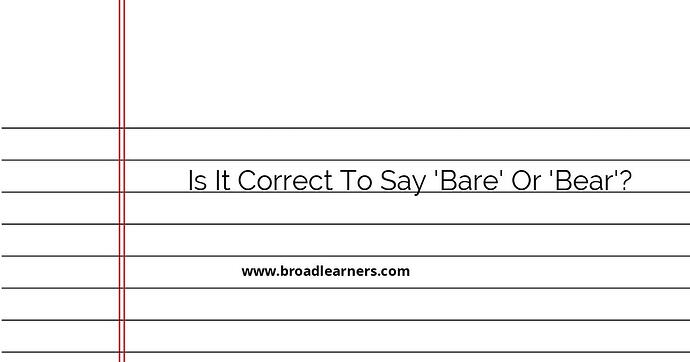The words 'bare' and 'bear' are often confused because they sound similar, but they have different meanings and usage.
'Bare' is an adjective that means uncovered, naked, or without clothing. It can also mean minimal or lacking embellishment. For example:
The baby's feet were bare.
The room was bare of furniture.
'Bear,' on the other hand, is a verb that means to carry, support, or endure. It can also refer to the large mammal with a heavy build and thick fur. For example:
He could barely bear the weight of the box.
The bear roamed the forest.
Here are some alternative sentences using 'bare' and 'bear' to help you understand their usage:
- She walked barefoot on the sandy beach.
- The cupboard was bare of any food.
- I can barely bear the pain of losing a loved one.
- The polar bear is an endangered species.
(meaning: She walked without wearing any shoes or socks on the sandy beach.)
(meaning: The cupboard had no food or was empty.)
(meaning: I can hardly endure the pain of losing a loved one.)
(meaning: The large mammal with a heavy build and thick fur, known as a polar bear, is at risk of extinction.)
In summary, 'bare' and 'bear' are two different words with distinct meanings and usage. 'Bare' is an adjective that means uncovered or lacking, while 'bear' is a verb that means to carry or endure. It's important to use the correct word in the appropriate context to ensure clear communication.
Did I miss anything? Respond below
